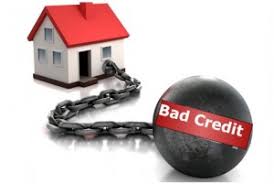
Credit Medic for You & Your Mortgage
Your credit score is a huge factor in getting a mortgage, and it won’t go away. The first thing Lenders do when they look at your application is to look at your credit score. From there, they build your file. It is crucial that you know where you stand with your credit score because so much of your lending availability is based on it.
The most important step in getting approved for a loan with bad credit is to improve your credit score. If you had a bankruptcy, once your bankruptcy has been discharged, you can apply for a secured credit card. There are companies that will give you a secured credit card if you pay the deposit. In fact, it can take as little as 30 days to turn your credit score around to make an application look more desirable.
Open a savings account and add regular deposits
- Having cash savings is a great way to show credibility to a credit card company. When you put funds into your savings account, it proves to a lender that you can manage your money. Once you have $1000 or so saved up, you can go to your Bank and get your secured credit card.
The optimum amount for your credit score is to keep your balances at 30%
- Once your balance surpasses that 30%, you jump into a different category. If you get to 80% or higher, then you fall into yet another category that lowers your credit score even more. Obviously, you can’t raise your credit score if you’re late on payments. But that doesn’t mean you should avoid using your credit cards. In fact, having credit cards shows the Lender you can manage credit.
Have at least two different types of credit cards. For example, a VISA and a Canadian Tire card
- You should have at least two or three active trades (credit card transactions) each month. Too often people pay off their credit cards and then believe it’s best to begin using cash for all transactions. The problem with this strategy is Lenders want to see active trades. Once your credit cards are paid off, try a simple transaction such as filling up your car with gas or buying groceries. Then pay off that balance at the end of the month so you keep your credit card or line of credit current.
The minimum amount of credit between your trades should be $2000 – $5000
- This may require having a couple of credit cards and/or a loan. The bottom line is Lenders won’t loan to people who haven’t proven they can handle credit. As mentioned earlier, you don’t have to go out and spend the entire limit on the credit card. Just make some sort of transaction that you can pay off right away. The key is keeping your accounts active.
Rule 2, 2, and 2
- Simply put, there is a basic 2, 2, and 2 rule that you can apply to your strategy to improve your credit. As mentioned earlier, make sure you have at least 2 credit cards from unique sources, make sure they have minimum limits of $2,000, and establish 2 years of credit history.
Make at least the minimum payment monthly
- The biggest mistake that consumers make with their credit is not making their minimum payments on time! Make sure you set up your payments in a way that you will remember to pay them EVERY month and ON TIME! Not doing so can affect your credit negatively.
Don’t let your credit be pulled too often
- Limit the number of times you apply for credit in a short period of time. It is a good idea to seek credit only when you really need it.
Another thing that is important to note is to check your personal credit report (at least once a year) to make sure you recognize all items reported are accurate on your history. If you practice this, you will most likely notice any discrepancy promptly and be able to fix it.
Think of it as an annual checkup for your financial health! You have the right to dispute any information on your credit report that you believe is wrong. You can ask the credit reporting agencies to correct errors. It’s free.
A few important things to look out for…
- Mistakes in your personal information
- Errors in credit card and loan accounts
- Negative information about your accounts that is still listed after the maximum number of years is allowed to stay on your report
- Accounts listed that you never opened yourself, which could be a sign of identity theft



